Search
51315-5540-Effect of Total Acidity and Water Content on Ethanol Corrosiveness (E100)
Also Purchased
09528 Corrosion and SCC Issues in Fuel Ethanol and Biofuels
Product Number:
51300-09528-SG
ISBN:
09528 2009 CP
Publication Date:
2009
$20.00
10078 Corrosivity of Anhyddrous Etthanol, Hydrated Ethanol and Fuel E25 (25% Ethanol/75% Gasoline)
Product Number:
51300-10078-SG
ISBN:
10078 2010 CP
Publication Date:
2010
$20.00
07574 SCC of Carbon Steel in Fuel Ethanol Service: Effect of Corrosion Potential and Ethanol Processing Source
Product Number:
51300-07574-SG
ISBN:
07574 2007 CP
Publication Date:
07574
$20.00




